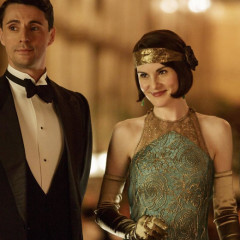 Warning: This post may contain some spoilers, but then again it's about Batman, as if there was anything to spoil. The caped crusader will obviously fight Joker with the help of character shields, as if you didn't know that anyway.
Warning: This post may contain some spoilers, but then again it's about Batman, as if there was anything to spoil. The caped crusader will obviously fight Joker with the help of character shields, as if you didn't know that anyway.
I didn't go to see the Dark Knight harboring illusions that it was going to be anything more than a pretty good rendition of the famed comic book hero protecting the streets of Gotham, unfortunately, it tried to be way more and came up way short as a result. Sometimes less is more....
I'll save you the plot summary and go straight to what I thought gave us cause to talk. Let's start with the moral considerations of the movie, namely those that dealt with Batman's surveillance apparatus that tapped into the cellphones of every citizen in Gotham. Morgan Freeman was troubled deeply by this and believed no man should have that much power. This was confusing given Freeman's devotion to vigilantism and all of the ethical ramification involved (for starters, lying, misappropriation of funds, neglect for due process of law, playing God, etc.) puts him in direct conflict with himself. That he has such a qualm with passively listening to cell phones for the common good seemed odd. We break some rules but not others?
Batman's principles are irrationally quixotic with respect to his end goal; saving innocent lives. He will not kill Joker in cold blood because of some outdated heroic code, yet at the same time realizes that his failure to do so will invariably result in more deaths of innocent people. In addition, Batman's principles are questionable at best. Although they condemn killing in cold blood, they seem to give a pass to physical abuse and torture.
Also, the ship scene at the end did not, as it's creator's intended, convince me that humans were inherently good, in fact, quite the opposite. Both groups of people did not seem to be moved so much by sparing the other ship because it was the right thing to do, but rather because the other ship hadn't killed them to that point. It was a twisted sense of loyalty that developed as a result of both parties indecision. While Tommy 'Tiny' Lister's gallant act of throwing the detonator out the window was touching, it was achieved through the deception of telling everyone he was going to do exactly the opposite. What does this say about the person who gave up the detonator believing it would be detonated and all of the onlookers who expressed no objection? Not much.
Then there was Aaron Eckhart's character, the epitome of all that was good, who ended up falling over to the dark side. This isn't as bad even as the fact that Batman makes it his DUTY to make sure the citizens never find out about this...that they just couldn't "handle" the information so it was necessary to lie to them. ( Que broadcasts of mass-marketed sermons around the country ).
As far as I'm concerned Joker's message triumphed. Sure there was no bang bang, but that was just bad luck, he succeeded in proving his point.
Heath Ledger did the best job of all the big names in the movie, but it wasn't anything spectacular. He was the most interesting, and he did bring a novel approach to Joker. The best actor of all was probably William Fitchner, too bad they had to get rid of him after the first scene.
Overall I didn't believe the movie was worth the ticket price, but it is hard to miss it, nonetheless.


.jpg)
.jpg)



.jpg)
.jpg)
.jpg)

.jpg)
.jpg)

.jpg)